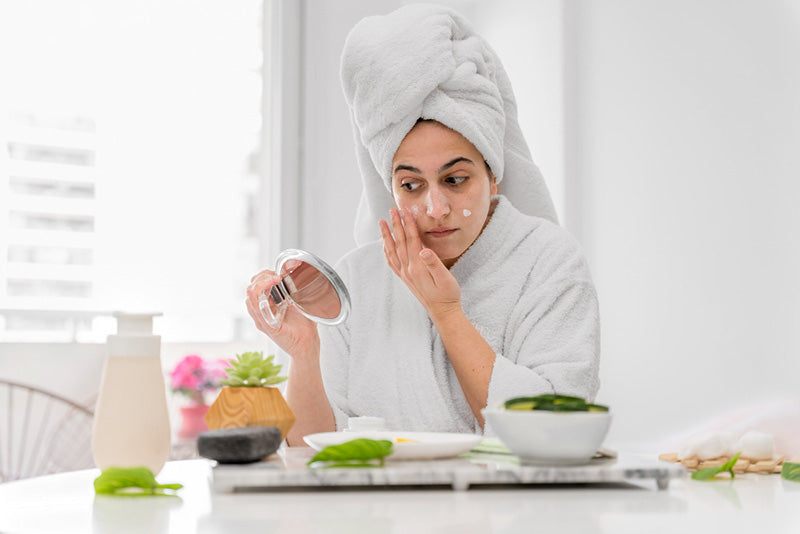What Causes Skin Sensitivity? Key Insights for Beauticians
As a beautician, understanding what causes skin sensitivity is essential to provide the most effective treatments for your clients. This comprehensive guide dives into the myriad factors contributing to sensitive skin, ensuring youre well-equipped to address and manage your clients' concerns.

Understanding Skin Sensitivity
At its core, skin sensitivity is not a single condition but a combination of reactions that occur when the skin barrier becomes compromised. This can lead to redness, itching, and irritation. The primary reason many individuals experience these symptoms is due to a weakened skin barrier, which can be attributed to several factors.
Environmental Factors
Environmental aggressors play a significant role in skin sensitivity. Exposure to harsh weather conditions, such as extreme cold or heat, can strip the skin of its natural oils, leading to dryness and sensitivity. Additionally, pollution and UV radiation from the sun can damage the skin barrier, exacerbating sensitive skin symptoms. For more on skincare routines that combat environmental factors, visit this guide.
Pollution's Impact
Pollution, particularly in urban areas, can deposit harmful particles on the skin, leading to inflammation and increased sensitivity. These particles can be small enough to penetrate the skin barrier, causing oxidative stress and irritation.
Sun Exposure
UV rays are notorious for breaking down collagen and elastin in the skin, which not only accelerates aging but also increases sensitivity. Regular use of sunscreen is crucial to protect the skin from these harmful effects.
Skincare Products and Ingredients
Beauticians must be aware of the ingredients in skincare products that can trigger sensitivity. Products containing alcohol, fragrances, and certain preservatives can be particularly irritating. It's important to recommend products that are formulated for sensitive skin, such as those with soothing ingredients like aloe vera or chamomile. For tips on selecting the right products, check out choosing skincare.
Fragrances and Preservatives
Fragrances, whether natural or synthetic, can cause allergic reactions in sensitive individuals. Preservatives like parabens and formaldehyde releasers are also common irritants.
Alcohol-Based Products
Alcohol can dry out the skin, leading to increased sensitivity. It's important to advise clients to look for alcohol-free alternatives to avoid unnecessary irritation.
Lifestyle and Dietary Influences
Diet and lifestyle choices significantly impact skin sensitivity. A diet high in processed foods and sugars can promote inflammation, while a balanced diet rich in antioxidants can help protect the skin. Additionally, habits such as smoking and excessive alcohol consumption can weaken the skin's defenses. For more lifestyle tips, refer to healthy habits.
Role of Diet
Foods rich in omega-3 fatty acids, vitamins E and C, and antioxidants can strengthen the skin barrier and reduce sensitivity. Encourage clients to incorporate these into their diet for better skin health.
Lifestyle Choices
Stress management, regular exercise, and adequate sleep are critical components of maintaining healthy skin. Stress can trigger flare-ups of skin conditions, so incorporating relaxation techniques can be beneficial.
Genetic and Hormonal Factors
Some individuals are genetically predisposed to sensitive skin. Conditions like eczema, rosacea, and allergies often have a genetic component. Hormonal changes, such as those occurring during pregnancy or menopause, can also affect skin sensitivity. Understanding these factors can help beauticians tailor treatments to individual needs. For more on managing hormonal skin changes, visit this resource.
Genetic Predisposition
Genetic factors can dictate the skin's overall sensitivity and vulnerability to environmental and product-related irritants.
Hormonal Influences
During hormonal fluctuations, the skin can become more reactive. Being aware of these changes helps in recommending suitable skincare solutions.

FAQ Section
What are the common triggers of skin sensitivity?
Common triggers include environmental factors, harsh skincare products, certain foods, and stress. Understanding these can help in managing sensitivity effectively.
How can I identify sensitive skin in my clients?
Sensitive skin often presents as redness, itching, and dryness. Conducting a thorough consultation and patch test can help identify sensitivity.
What are the best ingredients for sensitive skin?
Ingredients like aloe vera, chamomile, and hyaluronic acid are excellent for soothing sensitive skin. It's crucial to select products with these calming components.
For a structured routine that suits sensitive skin, consider checking out American Academy of Dermatology's guide.
This article contains affiliate links. We may earn a commission at no extra cost to you.

